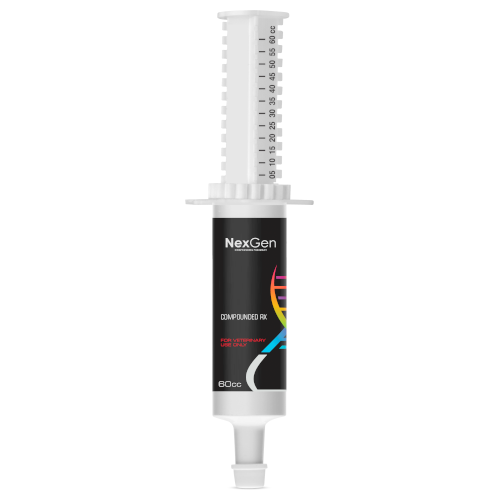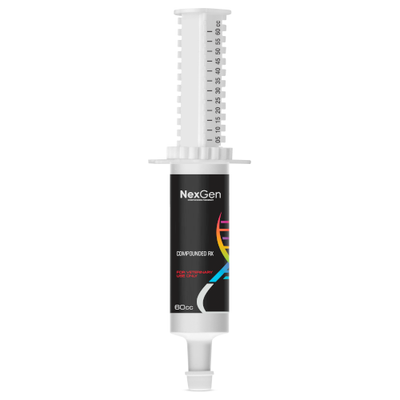
Azithromycin 250 mg/mL, Oral Paste, 60mL Syringe
Login for pricing
- Brand
- Mixlab
- SKU:
- NC-0179
- Product Type:
- Paste
- Size:
- 60ml
- Administration:
- Oral
Azithromycin is a broad spectrum macrolide antibiotic. In humans, it is widely used to treat chest infections such as pneumonia, infections of the nose and throat such as sinus infection (sinusitis), skin infections, Lyme disease, and some sexually transmitted infections. Azithromycin is often used in children, often to treat ear infections or chest infections. It is generally available by prescription as capsules, tablets and in liquid form. In equine veterinary applications, it is also available in paste form.
Bacterial Infections of Horses
Bacterial infections represent a major challenge in equine medicine. Horses are usually exposed to pathogenic bacteria constantly, but in most cases, they do not develop clinical illness. Bacterial disease often occurs when a horse’s immune system is weakened, and bacteria are able to replicate throughout the horse’s body.
Sources of disease-causing bacteria can include contaminated water, food or feces. Bacterial infections tend to be more common in horses that travel or those which spend a lot of time in stables. Foals and geriatric horses are more at risk for bacterial infections because their immune systems are not as strong as more robust adult horses.
A few common types of pathogenic bacteria that can infect horses include:
-
Tetanus
-
Salmonella
-
Strangles
-
Potomac Horse Fever
-
E Coli
-
Rhodococcus equi-induced pneumonia
Pneumonia caused by the intracellular bacterium R. equi is a major cause of disease and death in immunocompromised hosts, especially foals. Infection of foals with R. equi generally occurs during the first weeks after birth, when foals are more susceptible to infection with this pathogen.1 This is likely due to the underdevelopment of immune responses. Adaptive immune responses require more time to develop, thus neonates have a window during which they are not able to be protected by vaccines and consequently depend heavily on innate immune responses.2 There is evidence that maternal vaccination against R. equi protects foals against clinical pneumonia to some degree however, this obviously has limitations. Thus, the eradication of R. equi pneumonia in foals is reliant upon the antimicrobial treatment of foals affected with either clinical or subclinical pneumonia.
Azithromycin for Horses
Macrolide antibiotics are the standard of care for treating R. equi pneumonia in foals, although the bacteria’s resistance to macrolides is an emerging problem in equine medicine that has been linked to the practice of widespread antimicrobial treatment of foals with subclinical pneumonia at farms with endemic R. equi.2 This has resulted in adjunctive therapies being needed in some cases.
Where to buy Azithromycin
Azithromycin is available in the U.S. through several pharmaceutical manufacturers and through veterinary custom compounding companies.
Azithromycin carries numerous potential drug interactions. Please consult your veterinarian prior to beginning any treatment regimen.
FOR RX ONLY: A valid prescription from a licensed veterinarian is required for dispensing this medication.
1Davis J.L., et. al. Pharmacokinetics of azithromycin in foals after i.v. and oral dose and disposition into phagocytes. J Vet Pharmacol Ther. 2002 Apr;25(2):99-104.
2Suarez-Mier G., et al. Pulmonary disposition of erythromycin, azithromycin, and clarithromycin in foals. J Vet Pharmacol Ther. 2007;30(2):109-115.









